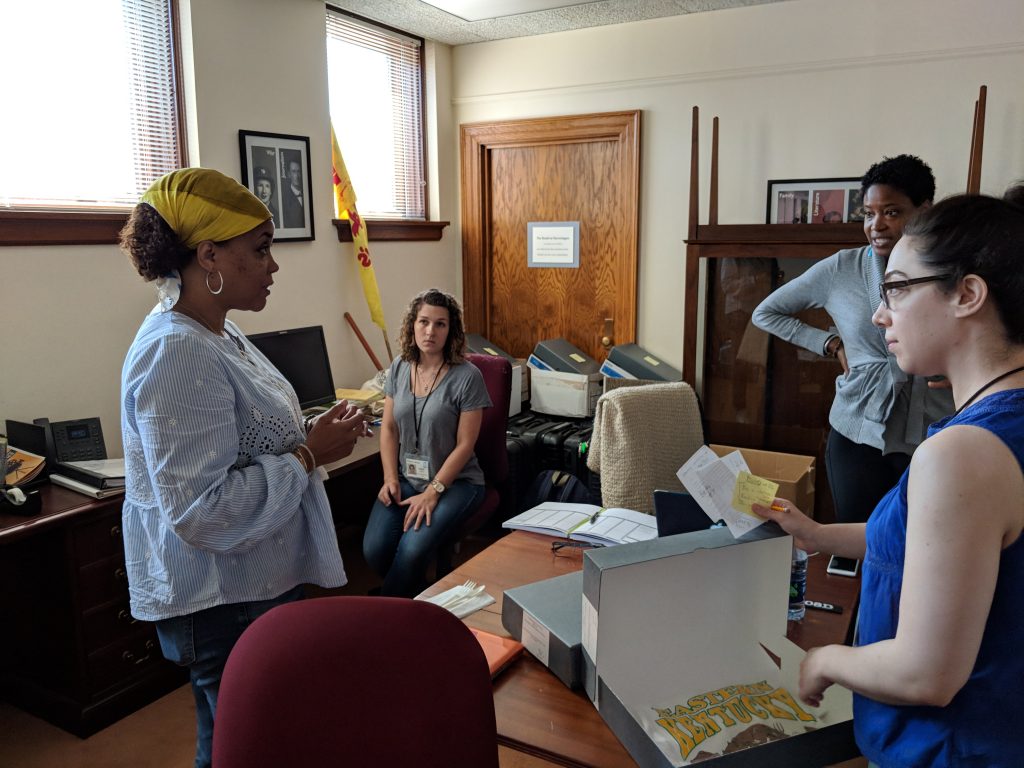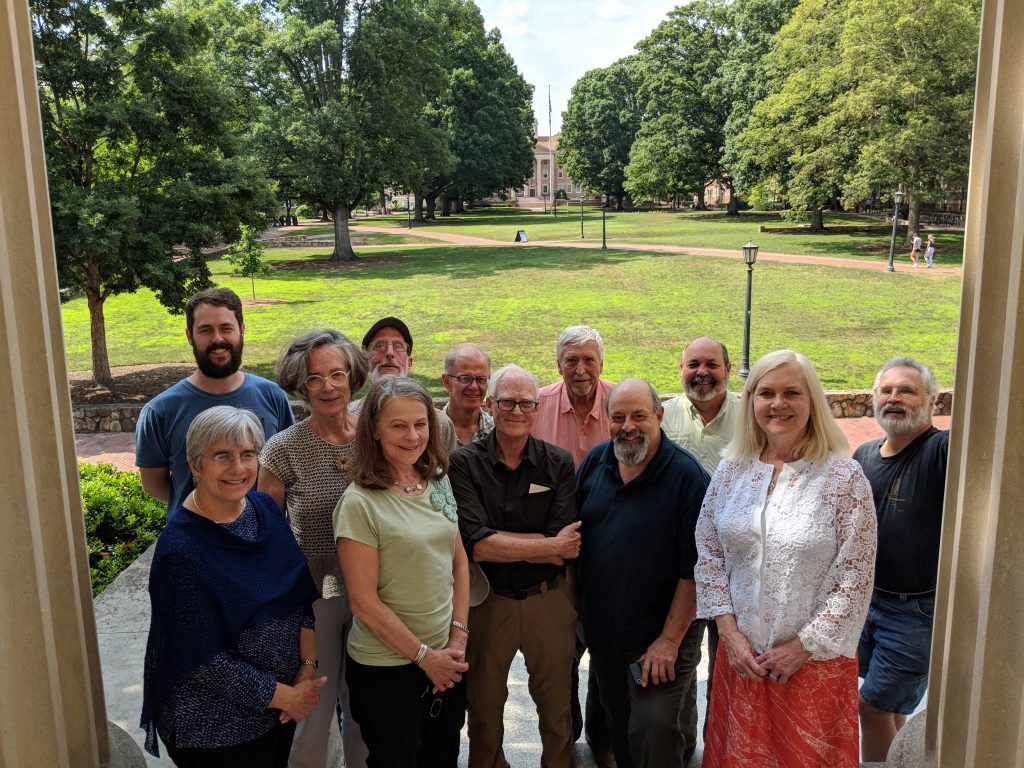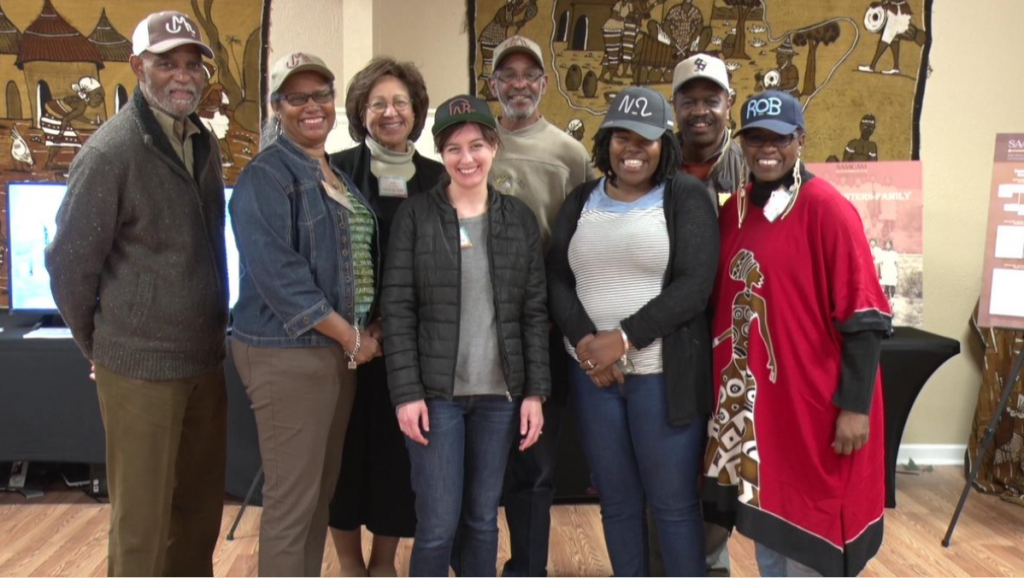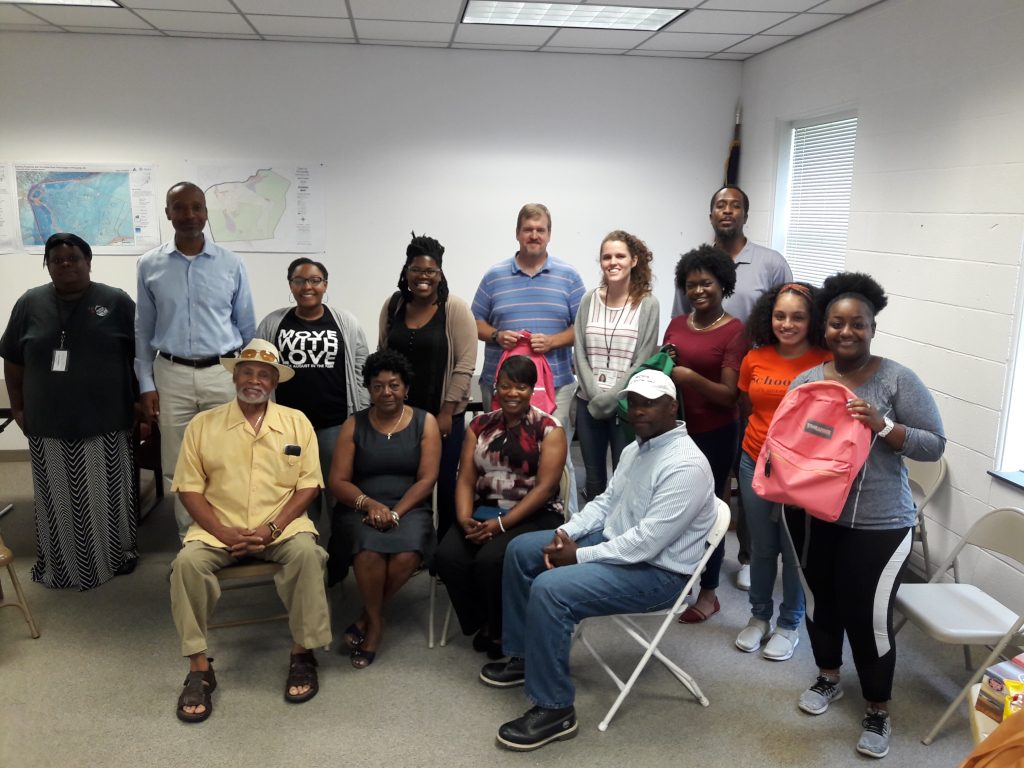Eastern Kentucky African American Migration Project (EKAAMP)
153 INTERVIEWS
In the EKAAMP Oral History Collection at the Wilson Special Collections Library

5 EXHIBITIONS
In collaboration with EKAAMP members
EKAAMP is a public humanities project that works closely with current and former residents of Eastern Kentucky to document and preserve the history of the 20th-century African American diaspora from the region. EKAAMP honors the place of African Americans in Appalachia and ensures that their stories are available to future generations.
Community Champion
Dr. Karida Brown, Assistant Professor in the Department of Sociology at UCLA and granddaughter of Black coal miners from Eastern Kentucky, Major Brown and Thornton Davis
What We Did Together
The University Libraries at UNC-Chapel Hill collaborated with EKAAMP community members to create archival collections, curate traveling exhibitions, and celebrate project milestones. Over four years, we were able to witness EKAAMP community members laugh, cry, and swell with pride in remembering their friends and family from Lynch, Kentucky during community gatherings. Our involvement with EKAAMP underscores that archives are personal and that building relationships with potential donor communities takes time.
Going Forward
Many EKAAMP stories are featured in Dr. Karida Brown’s book, Gone Home: Race and Roots in Appalachia (2018), a traveling exhibition by the same name, and archival collections at the Wilson Special Collections Library. Dr. Brown manages the project’s website. Campus libraries at UNC-Chapel Hill remains the steward of community members’ physical collections. Descendents of Lynch, Kentucky’s Black coal mining families continue to gather and celebrate each Memorial Day and Labor Day through the Eastern Kentucky Social Club.
Appalachian Student Health Coalition (ASHC)
32 COALITION MEMBERS
Featured on the ASHC website

13 HEALTH FAIRS
Sponsored by ASHC in Tennessee
The ASHC emerged from a Vanderbilt University medical student group founded in the 1960’s. Group members provided healthcare to underserved rural Appalachian communities.
In partnership with founding ASHC alumni, University Libraries at UNC-Chapel Hill, with support from the Community-Driven Archives grant, crafted a sustainable, long-term archival home for the organization’s materials, as well as for stories from the communities it served. The collection is now based in the Southern Historical Collection at the Wilson Special Collections Library.
Community Champion
Irwin Venick, a lawyer and ASHC alum, alongside an Advisory Council and a website working group, “The Websters”
What We Did Together
Carolina’s libraries collaborated with ASHC to gather archival collections, record oral histories, and build an independent project website. The community organized itself to update its website with curated video interview clips and written reflections on members’ experiences. Our group effort emphasized the value of community engagement when synthesizing and describing historical materials.
Going Forward
The ASHC Advisory Board continues to meet and discuss plans for the ASHC archive, continuing to engage more Coalition alums. It also expanded its mission to advocate for more community-based healthcare initiatives in rural and impoverished areas. ASHC members continue to collect archival material and fundraise to provide more capacity to curate and activate their archive with the support of volunteers, project fellows, and contracted workers.
San Antonio African American Community Archive and Museum (SAAACAM)
45 BLACK HISTORY SITES
From 19th century San Antonio identified through digital mapping

2,474 DIGITAL FILES
In SAAACAM’s archive, 2019
An independent community archive in San Antonio, Texas, SAAACAM’s mission is to collect, preserve, and share the cultural heritage of African Americans in the San Antonio region. Its foundational project has been the community-based creation and interpretion of a digital archival database of local African American history.
Community Champions
Everett Fly, an architect and preservationist, alongside SAAACAM’s Board of Directors
What We Did Together
University Libraries at UNC-Chapel Hill collaborated with SAAACAM staff and volunteers to offer workshops to the public on oral history, scanning historical materials, managing a digital archive, and developing digital humanities initiatives. As we advocated for SAAACAM’s inclusion in San Antonio’s broader cultural heritage landscape, we learned that some historical erasures can only be remedied through full community control over one’s archives. SAAACAM’s ability to sustain supportive institutional partnerships while growing and maintaining autonomy is a powerful example for other communities around the country.
Going Forward
SAAACAM now has a full staff, including an executive director, a digital archivist, a community collections curator, and an office manager. It identified a supportive local partnership with Texas A&M University at San Antonio, which now stewards SAAACAM’s digital archive and has hired a faculty member with an interest in using SAAACAM’s collections. It has also secured gallery and office space in two of San Antonio’s most renowned cultural heritage spaces, La Villita and the Witte Museum. SAAACAM continues to offer educational historical and cultural programming alongside its collecting efforts.
Historic Black Towns and Settlements Alliance (HBTSA)
8 HBTSA COMMUNITIES
Participating in Carolina Libraries’ Community-Driven Archives project

35 TOOLKITS
Shared with member towns through Archivist in a Backpack
HBTSA grew from a coalition of town partnerships, to a mayors’ conference, into a regional initiative promoting historic preservation and cultural tourism in Southern Black communities.
Community Champion
Dr. Michelle Robinson, Professor of English at Spelman College, mayors of individual HBTSA member towns, and local history groups
What We Did Together
University Libraries at UNC-Chapel Hill worked with representatives from eight HBTSA communities to deliver workshops and trainings, including some focused on engaging youth. We collaborated with each community to develop a project plan based on its unique capacities and goals. In the process, we witnessed the power of storytelling that connects the past to the present. We were proud to support local archival initiatives as part of a larger strategy of reckoning with systemic injustice and revitalizing communities.
Going Forward
HBTSA member towns continue their work to develop a national corridor highlighting places of significance for African American history and culture. The towns also continue to collaborate with nearby Historically Black Colleges and Universities, host annual events, and pursue site-specific initiatives, such as the Museum for the Study of African American History and Culture in Hobson City, Alabama, historical markers in Grambling, Louisiana, and a Gullah Geechee Heritage Center in Navassa, North Carolina.
